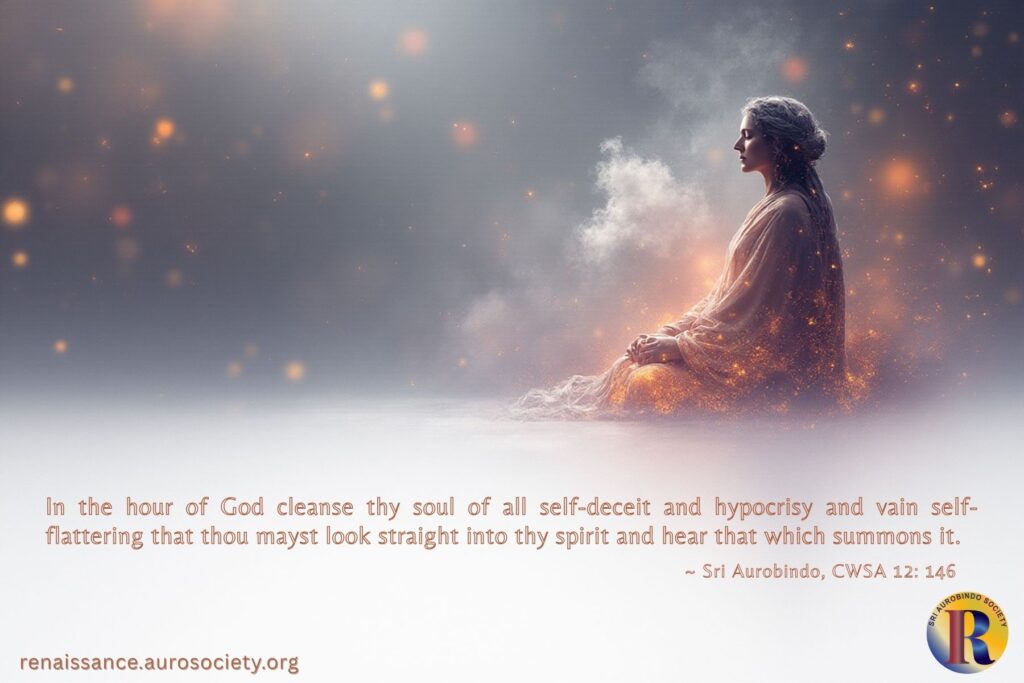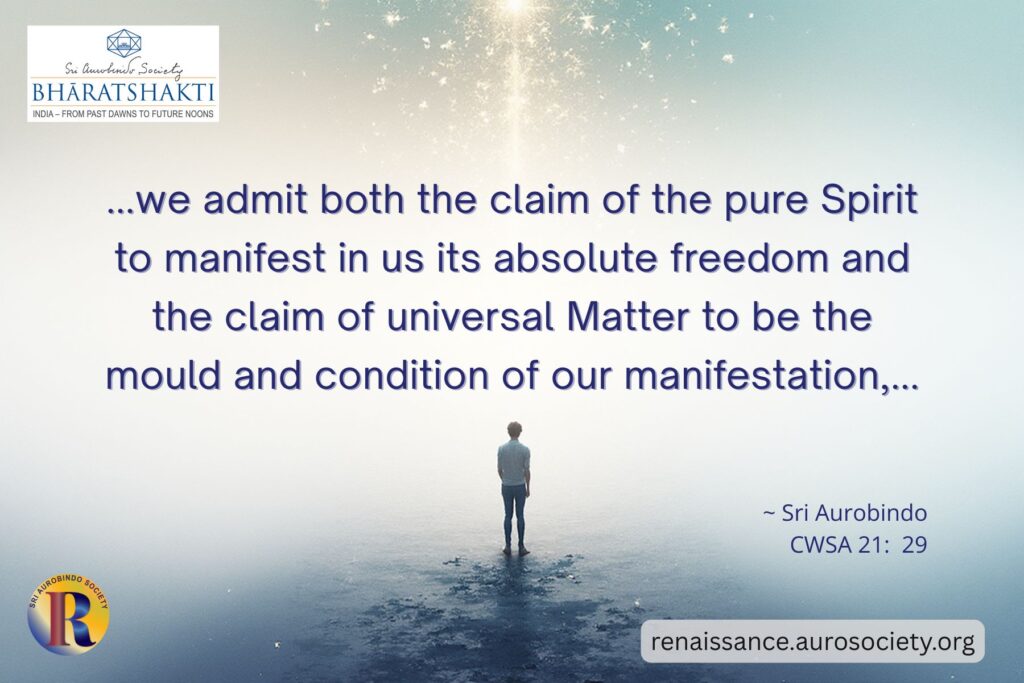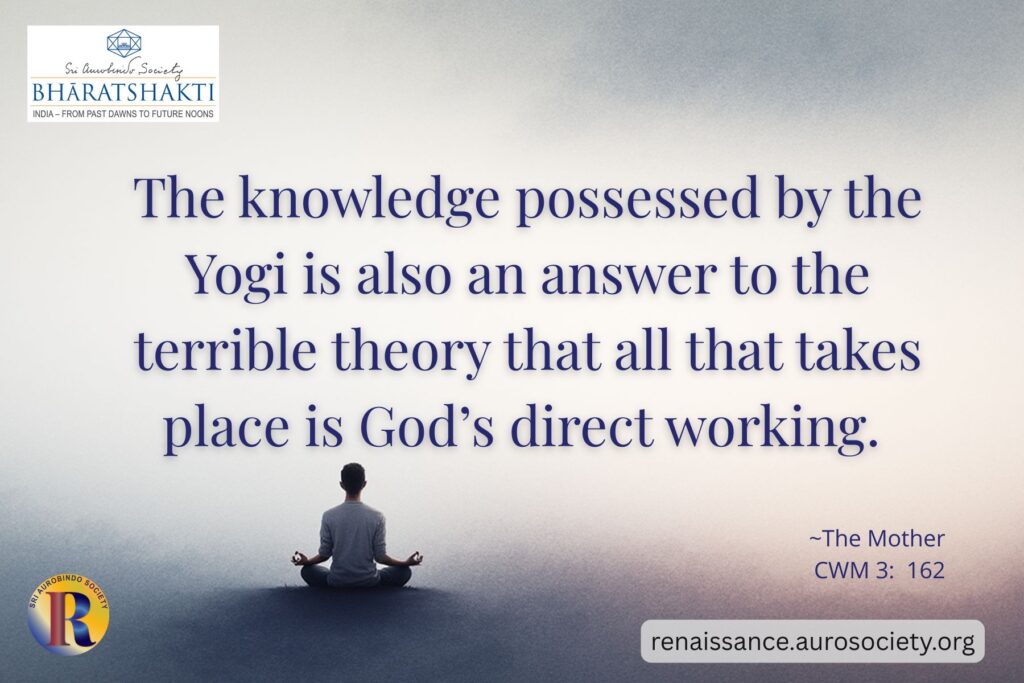Volume III, Issue 1
Author: A.L. Crampton Chalk
Editor’s note: This long essay was published in the 1952 annual issue of Sri Aurobindo Circle. At Renaissance, we are presenting it in 4 parts — 2 parts published in the current issue and 2 in the following one. For the ease of online readability, we have made minor formatting edits in the essay.
The author, a British-Canadian disciple who wrote regularly for Sri Aurobindo Circle, had visited Sri Aurobindo Ashram in 1953, and his thoughtful and delightful observations and experiences of life in India and particularly at the Ashram were published in the 1953 issue of Sri Aurobindo Circle.

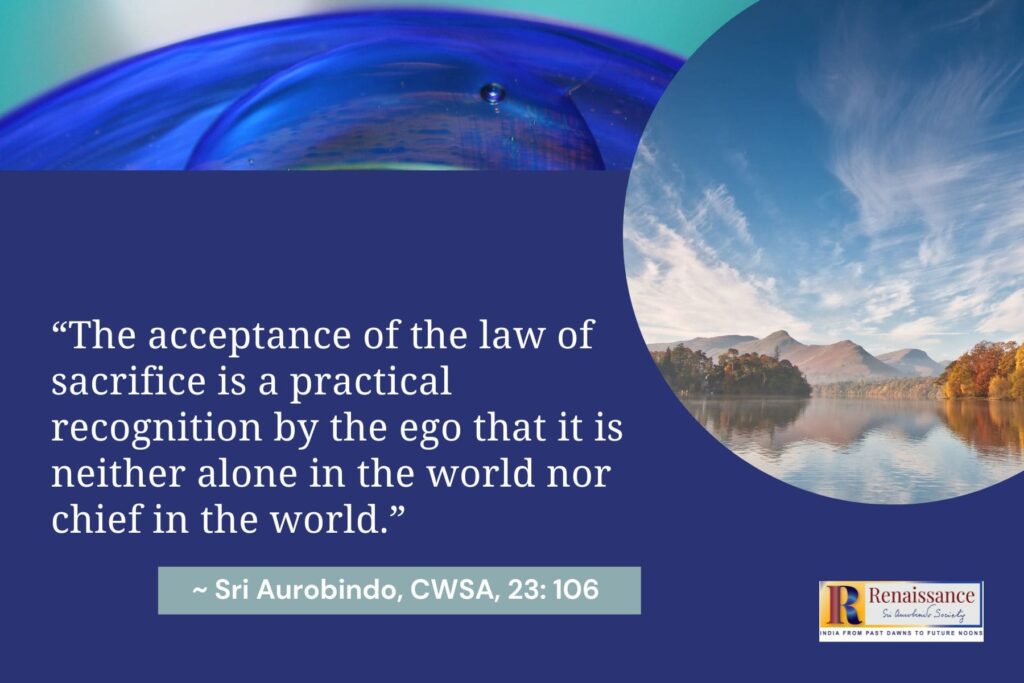

PART I
“The law of sacrifice is the common divine action that was thrown out into the world in its beginning as a symbol of the solidarity of the universe. It is by the attraction of this law that a divinising principle, a saving power descends to limit and correct and gradually to eliminate the errors of an egoistic and self-divided creation.”
~ Sri Aurobindo, CWSA, 23: 106
It is the errors of an egoistic and self-divided creation that are the central practical concern of every human being striving to fulfil the purpose of his life on earth. The errors are inevitable; indeed, they are the means of fulfilment, the fertiliser by which the seed of the spirit is made to grow and fructify on the plane of human life.
By definition, it must be the case that the only time the human mind is not acting ‘in error’ is when it is self-surrendered to the Divine.
This means that all ordinary or egoistic human life is lived in a state of error, or unbalance, however blameless it may appear to the person living it; this thought should cut away any tendency to self-satisfaction with one’s personal achievement or life as it ordinarily is.
Living a life partially free from error
The only living that can be free or partially free from error is that which is self-consciously surrendered to God, or to the principle beyond the local ego, so that the consciousness is then acting under the recognised and accepted authority of the Divine. Metaphysicians might say that it is also true that everything anyone does at any time within a self-activating universe must also be right and this, no doubt, is true if the judgment is rendered from above the plane of cause and effect.
But since the sphere where all worldly action can be seen as a cosmic harmony is quite beyond any normal human contact, this metaphysical truth has no bearing within the practical field of human affairs. Indeed, so far as individual responsibility is concerned it can be taken as literally non-sense, and there can be no justification for complaisance about any human activity which is in itself egoistic, and as such dissociated from direct spiritual control.
The fundamental problem of the human race
How, then, is human life to be reoriented so that its natural gravitation to error can be corrected, and so that human beings can live their lives and fulfil their destinies without constant pain and frustration? For it must be inferred that although trial and error is the foundation of the scheme which destiny uses as a means for bringing human beings to self-realisation and a harmony of the whole, pain is not in itself necessary, or at least is not continuously necessary, and can be avoided by knowledge and co-operation with the Divine.
This question of how is human life to be reconstituted to eliminate its present obvious and distressing imperfections is, of course, the ever-present and fundamental problem of the whole human race.
As material power is developed and simultaneously increases its hold over the race it becomes more and more apparent that there is some dreadful fault in our civilisation which, like a galloping consumption, seizes upon the people and nations of the world with ever-increasing effect and speed. In considering human behaviour and the possibilities of the race, thoughtful people see that the problem must be one for human individualities – or egos – to solve, for even in Communistic communities devoted to the worship of purely material eidolons it is quite obvious that it is units – all in a tight group at the top in this case – that sway the masses and not masses that sway the units, except in a mechanical and subordinate sense.
How to solve the fundamental problem
Admitted that the problem is one which must be separately solved by each and every human being, the question is – how to set about it?
Life is in disorder and everything points to the futility of finding answers to human problems within the confines of the ego and its mental and other attributes. The awakening ego is forced to look about, above, and outside itself for the answer to the riddle of life.
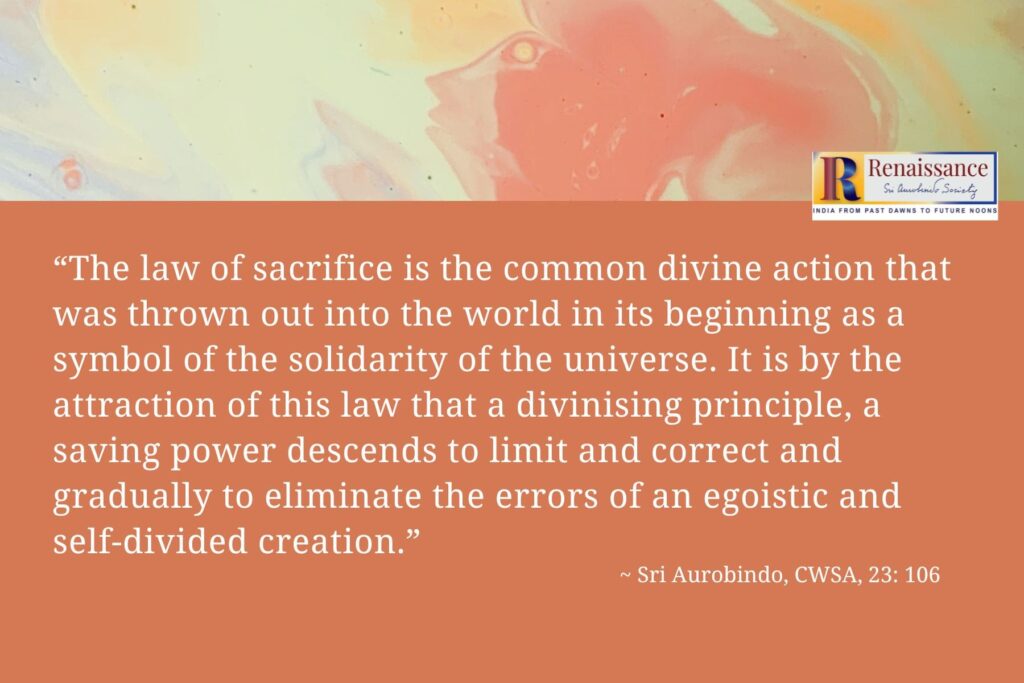
It is when the seeker finds or stumbles on the clue that “all-pervading Nature is incessantly engaged in sacrifice” (as is said in Chapter 3 of the Bhagavad Gita) that light begins to penetrate his understanding. He knows himself to be part of Nature, so, like it or lump it, he finds he must engage himself in sacrifice too. Perhaps he will see that —
“. . . most often, the sacrifice is done unconsciously, egoistically and without knowledge or acceptance of the true meaning of the great world-rite. It is so that the vast majority of earth-creatures do it; and, when it is so done, the individual derives only a mechanical minimum of natural inevitable profit, achieves by it only a slow painful progress limited and tortured by the smallness and suffering of the ego.”
~ Sri Aurobindo, CWSA, 23: 107
Law of sacrifice, means to correct the errors of our egoistic creation
But inevitably he will perceive, sooner or later, that, as Sri Aurobindo says, the law of sacrifice will and must provide the divinising power by which we may “limit and correct the errors of our egoistic and self-divided creation.”
“The acceptance of the law of sacrifice is a practical recognition by the ego that it is neither alone in the world nor chief in the world.”
~ CWSA, 23: 106
The errors of our creation, which incidentally have come to a dramatic and compelling climax in contemporary world events, all derive from lack of the divinisation of our lives and works, and it is by the acceptance and application of the principle of sacrifice that we may bring down the power and light of God, the harmonising principle, into human life and its affairs.
Barriers of egoism
To come down to practical cases, what prevents us from seeing clearly the way of right action is simply the barrier of our own egoism; our vision is fogged and distorted by the limitations and intrusions of our own conscious or unconscious desires.
Even when we have established some sort of control over our recognised personal inclinations we are pulled hither and thither by the attributes and the effects of our past actions, even when they are sunk beneath the surface of the ordinary self-consciousness. These forces arising out of the past or present, make distortions and excrescences on the face of our Psyche’s mirror so that we cannot receive a pure and clear reflection from the light of the Divine Shakti, the impelling Spirit Force of the universe.
Our egoism forces us to act as if we were, each of us, alone in the world or in any event chief in the world, and solely or at least primarily devoted to the purposes of our own strictly local circumstances.
Continued in Part 2
~ Design: Beloo Mehra

